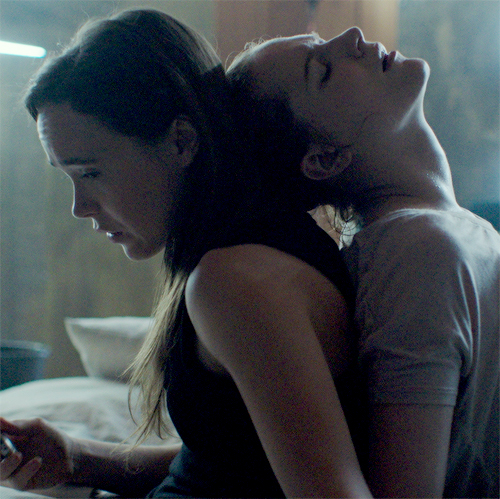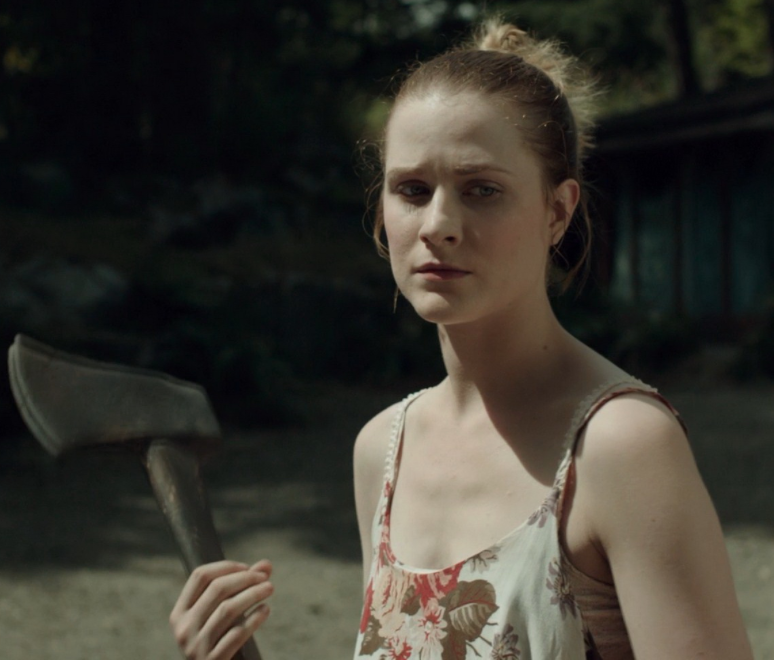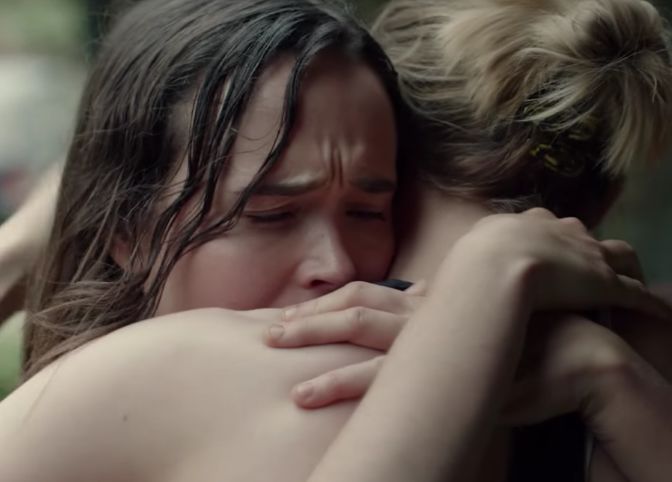 About a pair of sisters struggling after the breakdown of the national grid, “Into the Forest” may get lost in the glut of post-apocalyptic films we’ve seen since 2001. If that’s the case, it’ll be a shame, for this adaptation of Jean Hegland’s gently sci-fi novel is a more intimate film than many of those zombie-busters and doomsday thrillers. It also is more finely hewn, which makes sense as it’s the latest offering from Patricia Rozema, who has directed such thoughtful fare as “Mansfield Park” (1999) and the oft-overlooked “I’ve Heard the Mermaids Singing” (1987). (If you’ve not seen that sweetly oddball coming-out film, do yourself a favor and track it down.)
About a pair of sisters struggling after the breakdown of the national grid, “Into the Forest” may get lost in the glut of post-apocalyptic films we’ve seen since 2001. If that’s the case, it’ll be a shame, for this adaptation of Jean Hegland’s gently sci-fi novel is a more intimate film than many of those zombie-busters and doomsday thrillers. It also is more finely hewn, which makes sense as it’s the latest offering from Patricia Rozema, who has directed such thoughtful fare as “Mansfield Park” (1999) and the oft-overlooked “I’ve Heard the Mermaids Singing” (1987). (If you’ve not seen that sweetly oddball coming-out film, do yourself a favor and track it down.)
Eva (Evan Rachel Wood) and Nell (Ellen Page) live with their widower father (Callum Keith Rennie) in a North California mountain home that’s a study in lovely isolation. Nell is studying for university admission examinations; Eva is dead-set on acing a national dance audition; and both rely on the nearest town, many miles away, as well as their slightly futuristic technology for community and training. In this way, the family is even more dependent on screens and gadgets than most Americans. But when a seemingly permanent blackout grips the country, they seem better prepared than most because they’re well-acquainted with power outages up there in the woods. After a visit to town reveals abandoned stores, empty stations, and townspeople dangerously adrift, they retreat to their quarters, which are well stocked with canned organics, live chickens, and back-up generators galore. Then their father is killed in a fluke accident, and the bubble bursts for good; after burying their remaining parent, the girls must figure out how to ration their supplies, defend themselves from invaders, and maintain their sanity. 
One way this film stands out from other dystopian fare is that it doesn’t concern itself with the specific cause of the power grid failure and the resulting societal breakdown. There is no soap-boxing about environmental or political failures, no extraterrestrials, no burning cities, and few vigilante predators. Removed from civilization, Nell and Eva worry less about the whys than the hows – namely, how to physically and emotionally survive in this suddenly looming wilderness. Eva obsessively practices for her never-gonna-happen audition and begs Nell to drain their precious electrical resources so she can watch home movies of their parents. Nell describes Eva’s emotional state as a fugue – “she seems fine, but can’t absorb what has happened” – and considers ditching her to hike to the East Coast with glib boyfriend Eli (Max Minghella). But when Eva has a devastating encounter with the uninvited store clerk Stan (Michael Eklund), she opens her eyes and begins to face the future alongside her sister.
Part allegory, part psychological thriller, this film is a feminist fairy tale of sorts, though it is more intent on exploring biological than symbolic sisterhood, and too delicately textured to push anything so strident as an agenda. If anything, it upholds the bonds of blood to a degree I don’t necessarily endorse, but accept because of the pure love at its center. Nell may be immature and Eva may be needWe buy this because Page and Wood serve as uncanny mirrors for each other. Each can be irritatingly wheedling, but burrow past those former-child-actor tics to deliver generous, sharp performances that mercifully resurrect all the nuance lacking in Rozema’s teleplay. (She does not translate her characters’ inner lives well from Hegland’s book.)y, but they accept each other with a fortitude that eclipses their other human connections. 
The director more than compensates for her screenwriting deficiencies with voluptuous, haunting imagery. There is a mythic pull to this landscape, a lonely nostalgia for a neo-Neverland, that is evocatively captured in the disintegrating glass studio in which Eva practices, the labyrinth of green in which the sisters wander, the bottle-blue light bathing them as they sleep in the same bed. As modern life fades, they entwine with nature and with each other – a subtle suggestion that technology has eroded human connections and instincts. In “Into the Forest,” all is primal, and the future lies in the past.
This was originally published at Signature.
